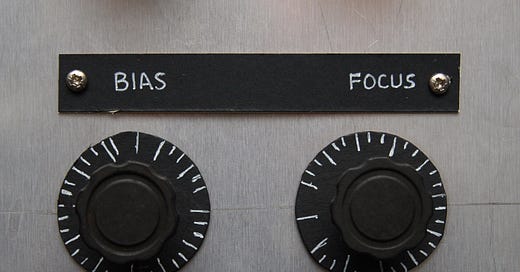On Media Bailouts and Bias: Why Government Media Policy Is Undermining Public Trust
Claims that journalists take orders from the PMO are absurd. But so too are suggestions that journalism tax policy and Bill C-18 don't influence coverage.
Yesterday I was a guest on a Toronto-area radio station where I was asked to discuss the government’s plans to more than double the amount available per journalist as part of the labour journalism tax credit. After a discussion of the tax credit program and months of blocked news links on Facebook as a consequence of Bill C-18, the host shifted the discussion by suggesting that the media had largely become propaganda on behalf of the government, insisting that these measures were consistent with a strategy of either blocking or influencing news coverage. I paused for a moment and said I disagreed, noting that there was good journalism and bad journalism, and his take was bad journalism. The segment ended immediately after that.
That experience came to mind later in the day as the debate over media bias and government funding captured further attention after Jenni Byrne, a leader in the Pierre Poilievre team, tweeted that criticism of Poilievre’s interactions with a journalist could be chalked up to the increased funding and that the bailout would mean journalists “would do whatever the PMO says.” Byrne’s comment strikes me as absurd as those of the radio host. All journalists have some biases. They wouldn’t be human if they didn’t. But the suggestion that a government tax plan would influence their individual coverage is just not credible.
While I don’t think any individual journalist biases coverage based on media funding, I do think the government’s media policies – both the significant public funding and Bill C-18 – have led to biased editorial coverage and a growing public perception of media bias. Indeed, while the government keeps insisting that its efforts are designed to support an independent media sector, I think it has the opposite effect, undermining public trust in our media as many rightfully question how media companies reliant for up to 70% of their news funding from either government tax credits or regulatory policy can be truly objective and independent (the 70% figure is the combined value of the tax credits and its fading hopes for what Bill C-18 will generate).
This is particularly true when the difference between editorial and business within the news industry becomes increasingly blurred. As I have told House and Senate committees, I personally had an opinion piece spiked because it ran counter the lobbying narrative of the news outlet in support of the bill. I know of others that have had the same experience. The Bill C-18 coverage was an egregious example of this bias, with outlets that normally criticize the government on just about everything finding the one policy that they liked. I think response has been even more troubling at the CBC, which has actively supported government digital policy when it stands to benefit. To suggest that support for these policies is a coincidence is as absurd as claims journalists now take directions from the PMO due to labour tax credits.
The perception of lost independence or bias is a function of more than just the money, however. In the case of the increased journalism tax credit, the government gave News Media Canada exactly what it had demanded months earlier right down to the penny. There was no particular economic rationale for the specific numbers. Rather, the lobby group knew that the government was inclined to support it and the government simply fell in line. Concerns about perceived bias and damaged reputation are easy to ignore when a big pot of money awaits.
The situation is even worse with Bill C-18. The Online News Act will take effect in less than a month. The delays in final regulations presumably means that the government and Google are in active discussions about those regulations and whether there is room for compromise. Given their respective incentives – the government desperately needs a deal given the disastrous effect of Meta blocking news links and Google has always made it clear it would prefer an agreement – a last minute deal is always possible.
But note what is happening behind the scenes. This isn’t really a negotiation between Google and the government. It is a negotiation between Google and the media companies with the government acting as their representative since there will be no deal unless the media companies grant their approval. Simply put, you cannot credibly claim independence from government when you simultaneously team up with it in regulatory negotiations. If they are able to strike a deal, it will be a proverbial case of being careful what you wish for, with the price including a further diminishment of the reputation of Canadian media as independent from the government thereby fuelling further skepticism about bias and public distrust.
Post originally appeared at https://www.michaelgeist.ca/2023/11/on-media-bailouts-and-bias-why-government-media-policy-is-undermining-public-trust/
Find me on:





Great commentary, Michael -- but, once again: I really think you should scream it from the rooftops that the very generous labour credits apply ONLY (or mostly) to legacy newspapers and that, by law, private broadcasters like Global, CTV, TVA -- which employ one helluva lot more journalist than newspapers and have a significantly larger audience than any one title (larger in fact, than many national titles combined) -- do not qualify. C-18, on the other hand, a completely different kettle of fish. Don't know about other broadcasters but Corus had a perfectly acceptable deal it had negotiated with Google that C-18 now imperils.